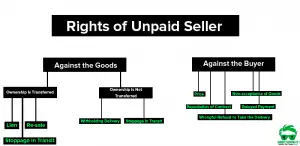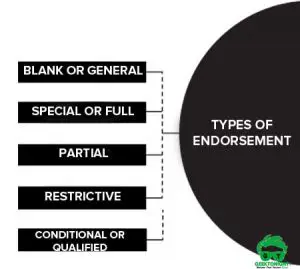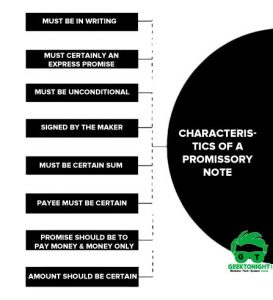Definition of Industrial Disputes
An industrial dispute may be defined as a conflict or difference of opinion between management and workers on the terms of employment. It is a disagreement between an employer and employees’ representative; usually a trade union, over pay and other working conditions and can result in industrial actions.
When an industrial dispute occurs, both the parties, that is the management and the workmen, try to pressurize each other. The management may resort to lockouts while the workers may resort to strikes, picketing or gherao
As per Section 2(k) of Industrial Disputes Act, 1947 an industrial dispute is defined as any dispute or difference between employees and employers, or between employers and workmen, or between workmen and which is connected with the employment or non-employment or the terms of employment or with the conditions of labour, of any person.
Table of Content
Introduction Industrial Disputes Act 1947
The first enactment dealing with the settlement of industrial disputes was the Employers’ and Workmen’s Disputes Act, 1860. This Act weighed much against the workers and was therefore replaced by the Trade Disputes Act, 1929.
The Act of 1929 contained special provisions regarding strikes in public utility services and general strikes affecting the community as a whole. The main purpose of the Act, however, was to provide conciliation machinery to bring about a peaceful settlement of industrial disputes.
Objective of Industrial Disputes Act
The objective of the Industrial Disputes Act is to secure industrial peace and harmony by providing machinery and procedure for the investigation and settlement of industrial disputes by negotiations.
The Act also lays down:
- The provision for payment of compensation to the Workman on account of closure or lay off or retrenchment.
- The procedure for prior permission of appropriate Government for laying off or retrenching the workers or closing down industrial establishments.
- Unfair labour practices on part of an employer or a trade union or workers.
Applicability
The Industrial Disputes Act extends to whole of India and applies to every industrial establishment carrying on any business, trade, manufacture or distribution of goods and services irrespective of the number of workmen employed therein.
Every person employed in an establishment for hire or reward including contract labour, apprentices and part time employees to do any manual, clerical, skilled, unskilled, technical, operational or supervisory work, is covered by the Act.
This Act though does not apply to persons mainly in managerial or administrative capacity, persons engaged in a supervisory capacity and drawing > 1600 p.m or executing managerial functions and persons subject to Army Act, Air Force and Navy Act or those in police service or officer or employee of a prison.
Definitions
- Appropriate Government [Sec. 2(a)]
- Award [Sec 2 (b)]
- Industry [Sec. 2(j)]
- Industrial Dispute [Sec. 2(k)]
- Settlement [Sec. 2(p)]
- Wages [Sec. 2(rr)]
Appropriate Government [Sec. 2(a)]
Appropriate Government means the Central Government in relation to any industrial dispute concerning any industry carried on by or under the authority of the Central Government, any industry carried on by a Railway Company, any controlled industry specified by the Central Government, The Unit Trust of India.
Corporations under the Central Statutes, Banking company, Insurance company. Mines. Oil field, Cantonment board, Major ports, etc. In relation to any other industrial dispute, the appropriate Government is the State Government.
Award [Sec 2 (b)]
means an interim or a final determination of any industrial dispute or of any question relating thereto by any Labour Court, Industrial Tribunal or National Industrial Tribunal and includes an arbitration award made under section 10A;
Industry [Sec. 2(j)]
Industry means any business, trade, undertaking, manufacture or calling of employers and includes any calling, service, employment, handicraft or industrial occupation or avocation of workmen.
Industrial Dispute [Sec. 2(k)]
means any dispute or difference between employers and employers, or between employers and workmen, or between workmen and workmen, which is connected with the employment or non-employment or the terms of employment or with the conditions of labour, of any person.
Settlement [Sec. 2(p)]
Settlement means a settlement arrived at in the course of conciliation proceeding and includes a written agreement between an employer and a workman arrived at otherwise than in the course of conciliation proceeding where such agreement has been signed by the parties thereto in such manner as may be prescribed and a copy thereof has been sent to an officer authorised by the Appropriate Government and the Conciliation Officer.
Wages [Sec. 2(rr)]
Wages mean all remuneration capable of being expressed in terms of money, which would, if the terms of employment, express or implied were fulfilled, be payable to a workman in respect of his employment or of the work done in such employment and includes:
- Such allowances (including dearness allowance) as the workman is for the time being entitled to;
- the value of any house accommodation, or of supply of light, water, medical attendance or other amenity or of any service or of any concessional supply of food grains or other articles;
- Any traveling concession. But the following are excluded:
- Any bonus
- Any contribution paid or payable to any pension fund or provident fund, or for the benefit of the workman under any law for the time being in force.
- Any gratuity payable on the termination of his service.
- Any bonus
Business Law Notes
(Click on Topic to Read)
Business Law Book References
- Goel, P. K. (2006). “Business Law for Managers” Wiley
- Sheth, T. (2017). “Business Law” (2ed.) Pearson.
- Kuchhal. M.C. & Prakash. “Business Legislation for Management” (2ed.) Vikas Publishing.
Go On, Share article with Friends
Did we miss something in Business Law Note? Come on! Tell us what you think about our article on Industrial Disputes Act, 1947 | Business Law in the comments section.
Business Law Notes
(Click on Topic to Read)
- What is Business Law?
- Indian Contract Act 1872
- Essential Elements of a Valid Contract
- Types of Contract
- What is Discharge of Contract?
- Performance of Contract
- Sales of Goods Act 1930
- Goods & Price: Contract of Sale
- Conditions and Warranties
- Doctrine of Caveat Emptor
- Transfer of Property
- Rights of Unpaid Seller
- Negotiable Instruments Act 1881
- Types of Negotiable Instruments
- Types of Endorsement
- What is Promissory Note?
- What is Cheque?
- What is Crossing of Cheque?
- What is Bill of Exchange?
- What is Offer?
- Limited Liability Partnership Act 2008
- Memorandum of Association
- Articles of Association
- What is Director?
- Trade Unions Act, 1926
- Industrial Disputes Act 1947
- Employee State Insurance Act 1948
- Payment of Wages Act 1936
- Payment of Bonus Act 1965
- Labour Law in India
Business Law Notes
(Click on Topic to Read)
- What is Business Law?
- Indian Contract Act 1872
- Essential Elements of a Valid Contract
- Types of Contract
- What is Discharge of Contract?
- Performance of Contract
- Sales of Goods Act 1930
- Goods & Price: Contract of Sale
- Conditions and Warranties
- Doctrine of Caveat Emptor
- Transfer of Property
- Rights of Unpaid Seller
- Negotiable Instruments Act 1881
- Types of Negotiable Instruments
- Types of Endorsement
- What is Promissory Note?
- What is Cheque?
- What is Crossing of Cheque?
- What is Bill of Exchange?
- What is Offer?
- Limited Liability Partnership Act 2008
- Memorandum of Association
- Articles of Association
- What is Director?
- Trade Unions Act, 1926
- Industrial Disputes Act 1947
- Employee State Insurance Act 1948
- Payment of Wages Act 1936
- Payment of Bonus Act 1965
- Labour Law in India






